I'm trying to implement a Kerberos authentication system integrated within a ![]() jetty-based application.
jetty-based application.
After requesting from my machine a ticket with kinit HTTP/app.company.local@COMPANY.LOCAL I open the web page on Chrome and I get the stacktrace:
GSSException: Defective token detected (Mechanism level: GSSHeader did not find the right tag)
at sun.security.jgss.GSSHeader.<init>(GSSHeader.java:97)
at sun.security.jgss.GSSContextImpl.acceptSecContext(GSSContextImpl.java:306)
at sun.security.jgss.GSSContextImpl.acceptSecContext(GSSContextImpl.java:285)
at org.eclipse.jetty.security.SpnegoLoginService.login(SpnegoLoginService.java:138)
at org.eclipse.jetty.security.authentication.LoginAuthenticator.login(LoginAuthenticator.java:61)
at org.eclipse.jetty.security.authentication.SpnegoAuthenticator.validateRequest(SpnegoAuthenticator.java:99)
at org.eclipse.jetty.security.SecurityHandler.handle(SecurityHandler.java:483)
at org.eclipse.jetty.server.handler.HandlerWrapper.handle(HandlerWrapper.java:134)
at org.eclipse.jetty.server.Server.handle(Server.java:524)
at org.eclipse.jetty.server.HttpChannel.handle(HttpChannel.java:319)
at org.eclipse.jetty.server.HttpConnection.onFillable(HttpConnection.java:253)
at org.eclipse.jetty.io.AbstractConnection$ReadCallback.succeeded(AbstractConnection.java:273)
at org.eclipse.jetty.io.FillInterest.fillable(FillInterest.java:95)
at org.eclipse.jetty.io.ssl.SslConnection.onFillable(SslConnection.java:201)
at org.eclipse.jetty.io.AbstractConnection$ReadCallback.succeeded(AbstractConnection.java:273)
at org.eclipse.jetty.io.FillInterest.fillable(FillInterest.java:95)
at org.eclipse.jetty.io.SelectChannelEndPoint$2.run(SelectChannelEndPoint.java:93)
at org.eclipse.jetty.util.thread.strategy.ExecuteProduceConsume.executeProduceConsume(ExecuteProduceConsume.java:303)
at org.eclipse.jetty.util.thread.strategy.ExecuteProduceConsume.produceConsume(ExecuteProduceConsume.java:148)
at org.eclipse.jetty.util.thread.strategy.ExecuteProduceConsume.run(ExecuteProduceConsume.java:136)
at org.eclipse.jetty.util.thread.QueuedThreadPool.runJob(QueuedThreadPool.java:671)
at org.eclipse.jetty.util.thread.QueuedThreadPool$2.run(QueuedThreadPool.java:589)
at java.lang.Thread.run(Thread.java:748)
I could find a few threads about this issue (although none so far managed to work for me). I guess the server returns a NTLM token which the web-application isn't able to parse.
I can assess though, that the web-application does manage to reach the Kerberos server, given the event log:
I wonder why that logoff happens, if it alters the authentication outcome, and thus triggers the GSSException on the web-server.
- The first two entries (right after the
Log clear),LogonandSpecial Logonevents, have a Logon ID:0xCDE977CB. - The other two + the
Logoffevent have the ID:0xCDE9781A. *.company.localand*.company.com(the localhost web-server URL) have been added to the Intranet trusted sites (didn't really understand which one I had to trust)- I'm connecting to the Kerberos Server via a VPN
- I'll have to bind the Jetty/SPNego classes with our custom home-grown authentication system
The problem arises from GSSHeader.class, as the stack-trace shows.
For some reason I'm getting the wrong code.
My configuration files:
spnego.conf
com.sun.security.jgss.initiate {
com.sun.security.auth.module.Krb5LoginModule required
principal = "HTTP/app.company.local"
keyTab = "D:/00_company/workspace/branch_develop/modules/config/auth/krb5.keytab"
useKeyTab = true
storeKey = true
debug = true
isInitiator = false;
};
com.sun.security.jgss.accept {
com.sun.security.auth.module.Krb5LoginModule required
principal = "HTTP/app.company.local"
useKeyTab = true
keyTab = "D:/00_company/workspace/branch_develop/modules/config/auth/krb5.keytab"
storeKey=true
debug=true
isInitiator=false;
};
krb5.ini
[libdefaults]
default_realm = COMPANY.LOCAL
permitted_enctypes = aes256-cts arcfour-hmac-md5 aes256-cts-hmac-sha1-96
default_tgs_enctypes = aes128-cts aes256-cts arcfour-hmac-md5 aes256-cts-hmac-sha1-96
default_tkt_enctypes = aes128-cts aes256-cts arcfour-hmac-md5 aes256-cts-hmac-sha1-96
default_keytab_name = D:/00_company/workspace/branch_develop/modules/common-config/auth/krb5.keytab
default_cache_name = C:/Users/mp91/krb5cc_mp91
[realms]
COMPANY.LOCAL = {
kdc = PC-i7.COMPANY.local:88
admin_server = 192.168.0.5
default_domain = company.local
}
[domain_realm]
company.local = COMPANY.LOCAL
.company.local = COMPANY.LOCAL
[appdefaults]
autologin = true
forwardable = true
spnego.properties
targetName = HTTP/app.company.local
This is the Java code that programmatically registers the <security-constraint> on application start-up.
private SecurityHandler wrapEnableSSOAuthHandlers(final Handler collection) {
// programmaticaly set JVM properties
// ini file
System.setProperty(
"java.security.krb5.conf",
_config.getString("authentication.win_sso.spnego.krb5")
);
System.setProperty(
"java.security.auth.login.config",
_config.getString("authentication.win_sso.spnego.login")
);
System.setProperty(
"javax.security.auth.useSubjectCredsOnly",
"false"
);
final Constraint spnegoConstraint = new Constraint();
spnegoConstraint.setName(Constraint.__SPNEGO_AUTH);
final String domainRealm = _config.getString("authentication.win_sso.domain.realm");
// resolves to "COMPANY.DOMAIN"
spnegoConstraint.setRoles(new String[]{domainRealm});
spnegoConstraint.setAuthenticate(true);
final ConstraintMapping mapping = new ConstraintMapping();
mapping.setConstraint(spnegoConstraint);
mapping.setPathSpec("/*");
final SpnegoLoginService loginService = new SpnegoLoginService();
final String spnegoProperties = _config.getString("authentication.win_sso.spnego.properties");
loginService.setConfig(spnegoProperties);
loginService.setName(domainRealm);
final ConstraintSecurityHandler securityHandler = new ConstraintSecurityHandler();
securityHandler.setLoginService(loginService);
securityHandler.setConstraintMappings(new ConstraintMapping[]{mapping});
securityHandler.setRealmName(domainRealm);
securityHandler.setAuthenticator(new SpnegoAuthenticator());
securityHandler.setHandler(collection);
return securityHandler;
}
Registration:
// ...
Handler wrappedSecurityHandler = wrapDisableTraceHandlers(handlers);
final boolean enableWinSSOauthentication = _config.getBoolean("authentication.win_sso.enable");
if (enableWinSSOauthentication) {
wrappedSecurityHandler = wrapEnableSSOAuthHandlers(wrappedSecurityHandler);
}
_server.setHandler(wrappedSecurityHandler);
// ...

